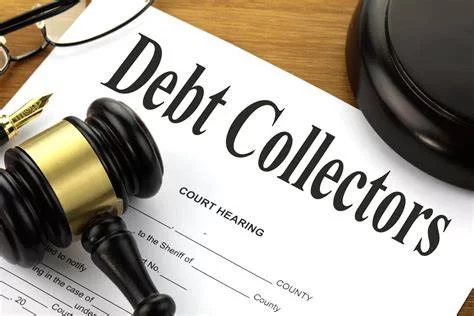- understanding-legal-rights-against-debt-collectors
- common-tactics-used-by-debt-collectors-and-when-they-cross-the-line
- how-legal-help-can-protect-you-from-unfair-debt-collection
- a-real-case-how-jessica-stopped-harassment-through-legal-support
- working-with-a-debt-defense-lawyer-what-to-expect
1. Understanding Legal Rights Against Debt Collectors
Dealing with aggressive or unethical debt collectors can feel overwhelming — but it’s essential to know that you're not powerless. There are specific legal protections in place that safeguard your rights. If you're seeking legal help for handling debt collectors, it starts with understanding your fundamental rights under laws such as the Fair Debt Collection Practices Act (FDCPA).
This law prohibits debt collectors from using abusive, deceptive, or unfair practices to collect debts. For example, they cannot contact you at unreasonable hours, threaten arrest, or disclose your debt to others without your consent. When they do cross that line, legal support can make all the difference — and firms like Fred Miller Lawyer specialize in guiding clients through this process with clarity and confidence.
2. Common Tactics Used by Debt Collectors and When They Cross the Line
2.1 Persistent and Excessive Calling
Debt collectors often call repeatedly to pressure you into paying. While a few calls may be legal, daily or hourly harassment is not. Some use auto-dialers to escalate the pressure. These tactics may be grounds for legal action.
2.2 Threats of Lawsuits or Arrest
Threatening to sue without intention, or falsely claiming you could be arrested for debt, is illegal. Unfortunately, these scare tactics still happen — particularly against vulnerable individuals unfamiliar with their rights.
2.3 Contacting Employers or Family
Some collectors attempt to embarrass or pressure debtors by contacting their workplace or family members. Legally, this is often a violation — collectors are restricted to verifying location and not allowed to discuss the debt’s details with third parties.
2.4 Sending Fake or Misleading Documents
Another tactic involves sending documents that appear to be from a court or law office — when they are not. These scare tactics are not only unethical but potentially criminal. If you’ve experienced this, seeking legal help for handling debt collectors is vital.
3. How Legal Help Can Protect You From Unfair Debt Collection
3.1 Immediate Legal Communication With Collectors
Once you hire a lawyer, debt collectors must contact your legal representative — not you. This alone brings relief to many. Your lawyer can assess the legitimacy of the debt and begin negotiations or legal proceedings if necessary.
3.2 Reviewing Debt Validity and Challenging Inaccuracies
In many cases, debts are sold and resold — with records becoming inaccurate. Legal experts can formally request verification of the debt and challenge invalid claims. Some clients discover the debt doesn’t even belong to them or is past the statute of limitations.
3.3 Filing Countersuits for Harassment or Violations
If a collector has violated FDCPA or other regulations, you may have grounds to sue. Courts may award damages, including compensation for stress, legal fees, and punitive damages. Legal help ensures your rights are not only protected but enforced.
3.4 Structuring Affordable Settlements
A debt lawyer can also negotiate manageable settlements or create payment plans that fit your financial situation — not the collector’s demands. With the right representation, you gain control of the conversation.
4. A Real Case: How Jessica Stopped Harassment Through Legal Support
4.1 Background
Jessica, a single mother from Illinois, was receiving relentless calls about a credit card debt she had already paid off years ago. The calls came at work and late at night. One collector even told her she could go to jail.
4.2 Seeking Legal Help
Terrified and confused, she reached out to Fred Miller Lawyer after reading about similar cases online. The legal team immediately sent a cease-and-desist notice and filed a verification request with the debt buyer. The results were telling — the collector had no documentation to prove the debt was valid.
4.3 Legal Resolution
Jessica’s attorney filed a complaint for FDCPA violations. Within two months, not only had the calls stopped, but she also received a settlement for emotional damages. Jessica’s case is a powerful reminder that no one has to accept intimidation in silence.
5. Working With a Debt Defense Lawyer: What to Expect
5.1 Initial Consultation and Case Assessment
Most debt lawyers offer free or affordable consultations. This session involves reviewing your debt situation, collection history, and any communication records. The goal is to identify rights violations or weaknesses in the collector’s case.
5.2 Tailored Legal Strategy
After understanding your circumstances, the lawyer will propose a course of action — whether it’s requesting verification, negotiating settlements, or preparing for litigation. At Fred Miller Lawyer, strategies are customized to fit both the legal and emotional needs of the client.
5.3 Ongoing Support and Peace of Mind
Beyond legal action, working with a qualified attorney brings reassurance. You gain an advocate who speaks on your behalf and handles complex processes. This emotional buffer is often as valuable as the legal work itself.
5.4 Restoring Financial Stability
Ultimately, the goal is not just to stop harassment — but to empower you to rebuild financial confidence. A successful defense can remove credit damage, halt wage garnishment, and open the door to new financial opportunities.


 alex borell
alex borell craig hansen lawyer
craig hansen lawyer eaker perez law
eaker perez law la century law reviews
la century law reviews mcintosh law firm
mcintosh law firm maggiano's hackensack nj 07601
maggiano's hackensack nj 07601